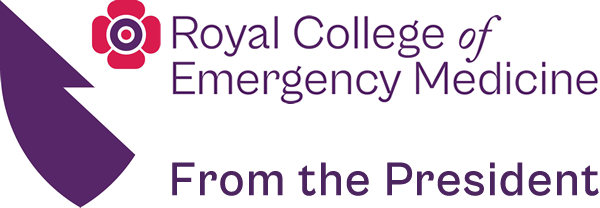In this blog, Chair of the RCEM Research Committee, Professor Jason Smith, talks about the committee’s work, the importance of research and the grants the College offers to fund it.
The Royal College of Emergency Medicine has declared that research is one of its top priorities, and the RCEM Research Strategy 2020 went some way to defining how the College might help to build research capacity in all of our emergency departments and make research a normal part of everyday clinical practice.
The RCEM Research Committee is tasked with facilitating this vision. The committee activities are summarised here. Much as I would love to believe that research is about a passion to improve patient care, individual ingenuity and innovation, the reality is often that research is about time, money and hard graft. The College can and is helping to build emergency care research capacity and infrastructure in terms of time and money.
Of course, the COVID-19 pandemic has been a challenge, and the NIHR Trauma and Emergency Care portfolio, within which emergency medicine sits, has been transformed to meet the urgent public health research demands – but EM has played its part, producing evidence relating to clinical presentation, diagnosis and treatment of COVID-19. However, as we emerge from the pandemic the portfolio of research activity is growing and expanding to meet the needs of other patient groups and to try to answer other important research questions.
To highlight a couple of areas of recent success, the investment in the Trainee Emergency Research Network has delivered beyond expectation, and credit goes to all those involved over the last couple of years. Over 100 emergency departments have TERN representatives and have been active in the TIRED and CERA studies, both of which have now been published in peer-reviewed journals and are influencing practice.
In 2017, the James Lind Alliance Emergency Medicine Priority Setting Partnership completed its work and published its findings. Since then, the National Institute for Health Research (NIHR) and other large research funders have awarded over £8million to projects directly addressing the EM research priorities, and in Dec 2019 the NIHR launched a themed call across all of their funding streams (including personal fellowships) addressing “injuries, accidents and urgent and emergency care”. We hope to revisit the original priorities soon to ensure that we are meeting the research needs of the specialty today.
Our RCEM research grant budget has increased by 50% over the last two years, and we now provide pump priming funding to the order of £60,000 per year to several projects, as well as specific low-middle income country research grants. We have increased the frequency of applications from annually to twice a year, so that if you have a great research idea in October, you don’t have to wait a year to get funding. Find out more about our research grants and how to apply here.
The RCEM PhD fellowship scheme, which aims to promote academic career progression in emergency medicine trainees, offers an increased stipend of £25,000 per year and there is now an annual competition (giving trainees the opportunity to apply for this funding every year). Recent RCEM doctoral fellow Dr Anisa Jafar has now completed her PhD and successfully been appointed as an NIHR Academic Clinical Lecturer in the North West, a marker of success for the scheme.
So, the future is challenging, but bright. Patient outcomes are better in hospitals that are research active, where there is higher staff satisfaction, and the Care Quality Commission (CQC) has included clinical research activity within its remit for hospital inspections. Our patients should have the opportunity to enter research studies in whatever emergency department they present to, and our trainees should have the opportunity to undertake research in whatever regional rotation they are appointed to. As consultants, we should aim to normalise research and make it a part of what we do. We all have a part to play in this, and I urge you to help to make research a part of everyday activity in your department. I’d be delighted to hear any feedback you may have and can be contacted at the email address below.
Professor Jason Smith
Chair, RCEM Research Committee
jasonesmith@nhs.net


